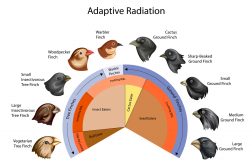Definition
noun, plural: gene pools
(population genetics) The total number of genes of every individual in an interbreeding population
Supplement
Gene pool refers to the total number of genes of every individual in a population. It usually involves a particular species within a population. Determining the gene pool is important in analyzing the genetic diversity of a population. The more genetically diverse is a population, the better are the chances of acquiring traits that boost biological fitness and survival.
A large gene pool indicates high genetic diversity, increased chances of biological fitness, and survival. A small gene pool indicates low genetic diversity, reduced chances of acquiring biological fitness, and increased possibility of extinction. Genetic equilibrium is a condition where a gene pool is not changing in frequency because the evolutionary forces acting upon the allele are equal. As a result, the population does not evolve even after several generations.
Gene pool increases when mutation occurs and survives. Gene pool decreases when the population size is significantly reduced (e.g. famine, genetic disease, etc.). Some of the consequences when gene pool is small are low fertility, and increased probability of acquiring genetic diseases and deformities.
Gene pool gives an idea of the number of genes, the variety of genes and the type of genes existing in a population. It can be used to help determine gene frequencies or the ratio between different types of genes in a population.
See also:
- gene frequency
- genetic diversity
- genetic isolation
- inbreeding
- genetic equilibrium







